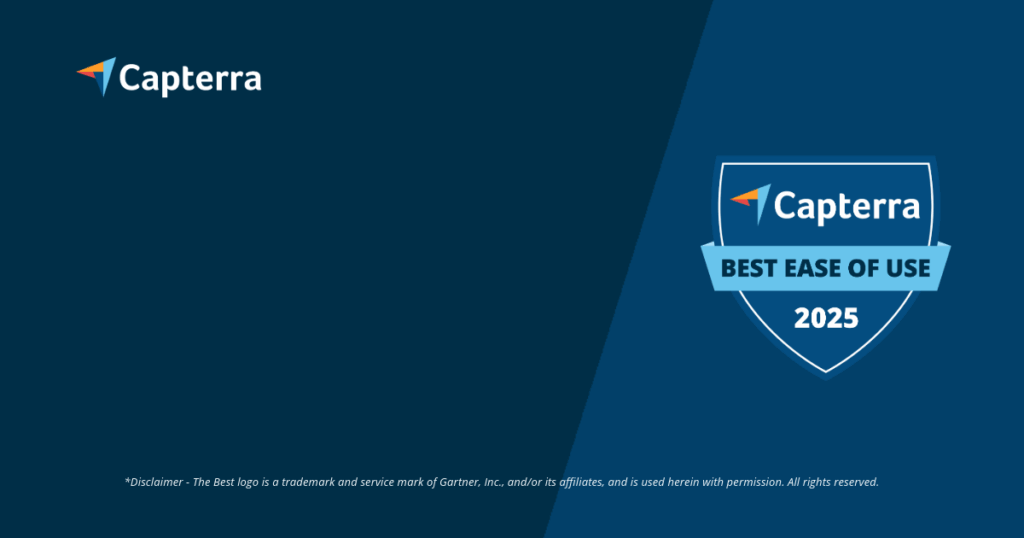The digitalization of the construction site has become a key factor in the construction industry. In an era where efficiency and precision are increasingly important, site digitalization offers enormous advantages. The digitalization process opens up numerous opportunities for optimizing construction projects. Site managers and project managers face the challenge of finding innovative solutions to improve the planning, execution, and control of construction sites. The decision to implement site digitalization can be an effective way to tackle these challenges and elevate project management to a new level.
This article provides practical tips and tricks on how site digitalization can be successfully implemented. It analyzes the benefits of construction site digitalization and introduces useful software tools for construction management. Additionally, it demonstrates how technologies for site digitalization can be introduced and addresses important aspects of data security and the legal framework. This information helps professionals in the construction industry make their processes more efficient by digitalizing their construction sites and increasing productivity.
The Benefits of Site Digitalization
The digitalization of the construction site has a significant impact on efficiency and productivity in the construction industry. It offers numerous benefits that optimize projects and improve collaboration between workers on-site and in the office. This digital transformation is essential for construction companies to remain competitive and achieve more effective results.
Efficiency Improvement
Site digitalization enables the automated creation of daily construction reports, delay notices, and other important documents. This saves time and reduces repetitive manual tasks, which are often tedious. Employees can thus focus on the essential aspects of their work instead of time-consuming administrative activities. Digitalization also allows for better control over the schedule and resources, ensuring that processes run more efficiently.
Digitalization also improves planning and resource allocation. With digital tools, detailed schedules can be created and progress monitored in real-time. This enables project managers to adjust the plan in case of issues, avoiding costly delays and optimizing resource deployment.
Cost Reduction
By implementing digital solutions for site digitalization, significant cost savings can be achieved. Using messaging services for data collection on-site eliminates the need for expensive software training. Additionally, reducing manual processes minimizes errors and the associated costs. Every error prevented through digitalization means a significant saving of resources, time, and money.
Digitalization of the construction site also contributes to lowering costs associated with inventory management and material usage. By providing a clear overview of available resources and project requirements, companies can optimize material procurement and avoid waste. Furthermore, the automation of reports and instant access to documents help reduce the time spent on administrative management.
Improved Communication
A crucial advantage of site digitalization is the improved communication among all project participants. Up-to-date documents and plans are accessible to all participants at any time, facilitating collaboration. The ability to share project documents and control access ensures efficient and secure information distribution. Digitalization significantly enhances communication and reduces the likelihood of misunderstandings.
With digital tools, construction teams and project managers can communicate more smoothly. Changes to plans or schedules can be shared immediately, allowing for a quick response to problems. Additionally, digital documentation can include photos, videos, and voice notes, facilitating a better understanding of the ongoing work.
Improved Safety on the Construction Site
The digitalization of the construction site also positively impacts work safety. By employing technology to monitor and control risks on the site, companies can identify potential hazards before they become problems. The digital monitoring of compliance with safety regulations ensures that employees work under safe conditions, reducing accidents and improving staff well-being.
Digital applications can include safety checklists and inspection protocols that ensure all critical aspects of the work are fulfilled. By automating this process, companies can save time and ensure that no part of the safety procedure is overlooked.
Digital Tools for Construction Management
Site digitalization requires modern tools that make work more efficient, both on-site and in the office. These digital solutions have a significant impact on productivity and communication in construction management. In the context of “site digitalization”, the following digital tools are worth highlighting:
Project Management Software
Modern project management software like Valoon revolutionizes the way projects are managed. These tools enable the automated creation of daily construction reports, delay notices, and other important documents, reducing repetitive manual processes so employees can focus on essential tasks. Site digitalization is significantly simplified by such software solutions, which centralize all relevant information.
The software also facilitates resource planning and real-time progress tracking. Project managers can access current data from the construction site at any time, enabling them to make informed and timely decisions. This connectivity is crucial for improving project quality and ensuring that all activities are aligned with the set objectives.
Mobile Apps for Construction Documentation
Mobile apps play a crucial role in data collection at the construction site. They allow employees to gather information directly via messaging services without requiring training for special software. This leads to 100% acceptance since employees can work with applications they are already familiar with. Another advantage is the ability for real-time translation in up to 10 languages, improving communication between the site and the office.
These apps also allow for taking photos and adding annotations on-site, providing a visual and detailed context for each project phase. Site digitalization is significantly enhanced as all this information is stored and made available in real-time, eliminating the need for paper notes that can be lost or misinterpreted.
Cloud Solutions
Cloud solutions like Valoon provide all project participants with access to current documents and plans. This ensures that the team is always working with the latest information. Furthermore, these solutions allow for GDPR-compliant communication and control over who can view which documents. The simple project registration via QR code or link makes getting started easy for all participants. Site digitalization through cloud solutions offers additional flexibility and security.
Cloud solutions also improve collaboration by enabling employees and managers to access the same documents, regardless of their location. This connectivity is crucial for ensuring that everyone is on the same page, reducing misunderstandings and improving team efficiency.
Implementation of Digital Processes
The implementation of digital processes at the construction site requires careful planning and execution. To ensure a smooth transition, companies should consider the following aspects:
Training of Employees
Implementing digital tools like Valoon does not require extensive training. Employees on-site can use their usual messaging apps for data collection. This leads to high acceptance as no new software needs to be learned. Data collection takes place directly via messaging, so the focus is on work rather than technology. The digitalization of the construction site is thus significantly simplified.
It is also important to ensure a gradual introduction to the new technologies so that employees feel comfortable with the change. This training can include simple tutorials, on-site demonstrations, and ongoing support to answer questions and resolve issues as employees familiarize themselves with the new tools.
Gradual Introduction
- Project Setup: A new project can be set up in Valoon with just a few clicks.
- Easy Project Registration: Employees can register via QR code or link.
- Immediate Availability: The system is ready for use within minutes.
This gradual introduction allows for the implementation of digital processes without interrupting ongoing operations. Since this is a gradual transition, employees also have time to adapt to the new technologies, reducing the risk of resistance to change.
Overcoming Resistance
To overcome potential resistance, Valoon offers the following advantages:
- 100% acceptance through the use of familiar apps
- No training required, which saves time and resources
- Real-time translation in up to 10 languages to improve communication
These advantages help address concerns and motivate employees to adopt digital tools. The digitalization of the construction site is facilitated by these measures, ensuring high acceptance and a smooth transition to a more modern and efficient working environment.
Data Security and Legal Aspects
The digitalization of the construction site requires special attention to data security and legal aspects. Valoon provides solutions that meet these requirements while enhancing the efficiency of workflow processes. In the context of “site digitalization,” the following aspects are of fundamental importance:
GDPR Compliance
Valoon ensures GDPR-compliant communication. This has a significant impact on the security of sensitive project data. Companies can trust that their information is processed in accordance with applicable data protection regulations. Compliance with GDPR not only secures data privacy but also protects the company from potential legal sanctions.
Secure Data Storage
The platform allows that current documents and plans for all projects and participants are available while maintaining data security. This ensures that teams always work with the latest documents without compromising security. By storing data in the cloud, the integrity of the information is ensured and the loss of important documents is avoided.
Access Rights
Valoon provides the ability to control who can view which documents. This enables project documents to be easily and securely shared with all participants while ensuring confidentiality. The platform simplifies workflows, secures information, and optimizes project management. In this way, the digitalization of the construction site is implemented safely and efficiently. Thanks to these features, Valoon creates added value for the entire team and enables a secure and efficient digitalization of the construction site.
Conclusion
The digitalization of the construction site has a significant impact on efficiency and productivity in the construction industry. Modern tools like project management software, mobile apps, and cloud solutions revolutionize the way projects are managed. These digital solutions enable simplifying workflows, improving communication, and reducing costs. The gradual introduction and the use of familiar applications help overcome resistance and achieve high acceptance among employees.
Implementing digital processes also requires special attention to data security and legal aspects. GDPR-compliant communication, secure data storage, and controlling access rights are essential elements of a successful digitalization strategy. These measures ensure that companies can benefit from the advantages of digitalization without compromising security. To advance the digitalization of the construction site and to leverage its benefits, it is recommended to contact Valoon and request a demo..
The digitalization of the construction site is not just a trend but a necessity for companies looking to improve their competitiveness and adapt to the current market demands. With the right use of digital tools, the construction industry can achieve significant progress towards higher efficiency, safety, and collaboration, thereby ensuring the long-term success of construction projects.








